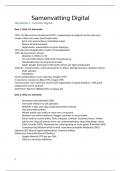Types of judges
The “judiciary” is a collective noun used to describe JUDGES.
There are two main types of judges
1) Superior judges who sit in the High Court and the courts above it.
2) Inferior judges who sit in all the lower courts below the High Court.
Superior judges include
1) Lord Justices of the Supreme Court [12 judges who sit, as a panel of 3,5,7,9 or 11 on
the recent Brexit case, in the UKSC hearing around 60 appeals each year (a mix of
both civil and criminal cases) which involve human rights and points of law of
national/public importance].
2) Lord Justices of Appeal [judges who sit as a panel of 3 or 5 judges hearing civil and
criminal appeals]
3) High Court Judges (also called “puisne” judges) [sit in the 3 divisions of the High
Court and also on serious criminal cases in the Crown Court].
Inferior judges include
1) Circuit judges who sit in both the High Court and the Crown Court (hearing both civil
and criminal cases)
2) Recorders who are part time judges who usually sit in the Crown Court but do
sometimes sit in the County Court.
3) District judges who hear all small claims and other matters in the County Court.
4) District judges in the Magistrates Court, who sit in the Magistrates’ Courts in London
and other major cities such as Birmingham.
5) (Tribunal judges)
Qualifications of judges
The current qualification requirements for the different types of judges are set out in the
Tribunals, Courts and Enforcement Act 2007 (which amended the Courts and Legal Services Act
1990).
The usual qualification requirements are formal legal qualifications, plus a specified period of
legal experience or judges could be moving up from a lower ranking judgeship.
For all posts the applicant must have qualified to work as a solicitor or barrister (and since 2007
a legal executive), and must have either worked as a lawyer or in another associated role, such
as legal academic (law lecturer).
The qualifying periods of legal experience vary. Supreme Court justices need to have had higher
rights of audience for 15 years. Lord Justices of Appeal, Circuit Judges and Recorders must all
have 7 years legal experience whereas a District Judge only needs 5 years legal experience.
The selection of judges
All types of judges, except Lord Justices of the Supreme Court, are selected in the same way, by
The Judicial Appointments Commission, a mixed panel of legal professionals and lay people,
responsible for the selection of over 500 judges each year, selects these judges.
It selects on merit (how good you are, not who you “know”)
The JAC looks for five judicial qualities… including…
1) Intellectual capacity
2) Personal qualities including sound judgement, decisiveness etc.
3) Ability to understand and deal fairly,
4) Efficiency
5) Authority and communication skills
The JAC looks for good character… and should not have criminal convictions (minor motoring
convictions may be allowed)









